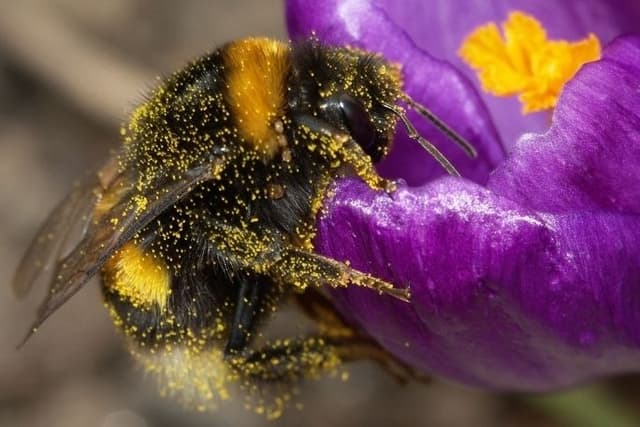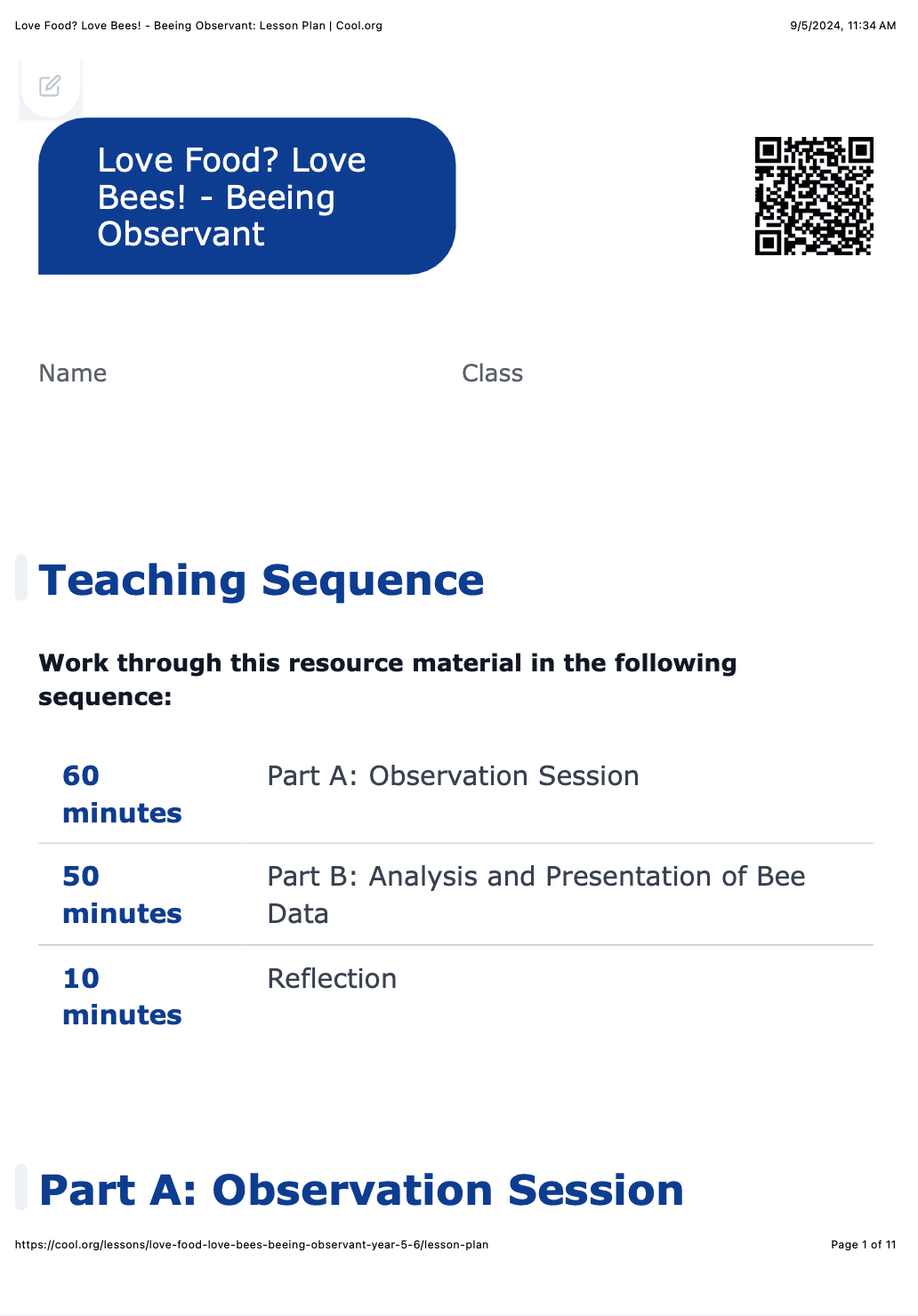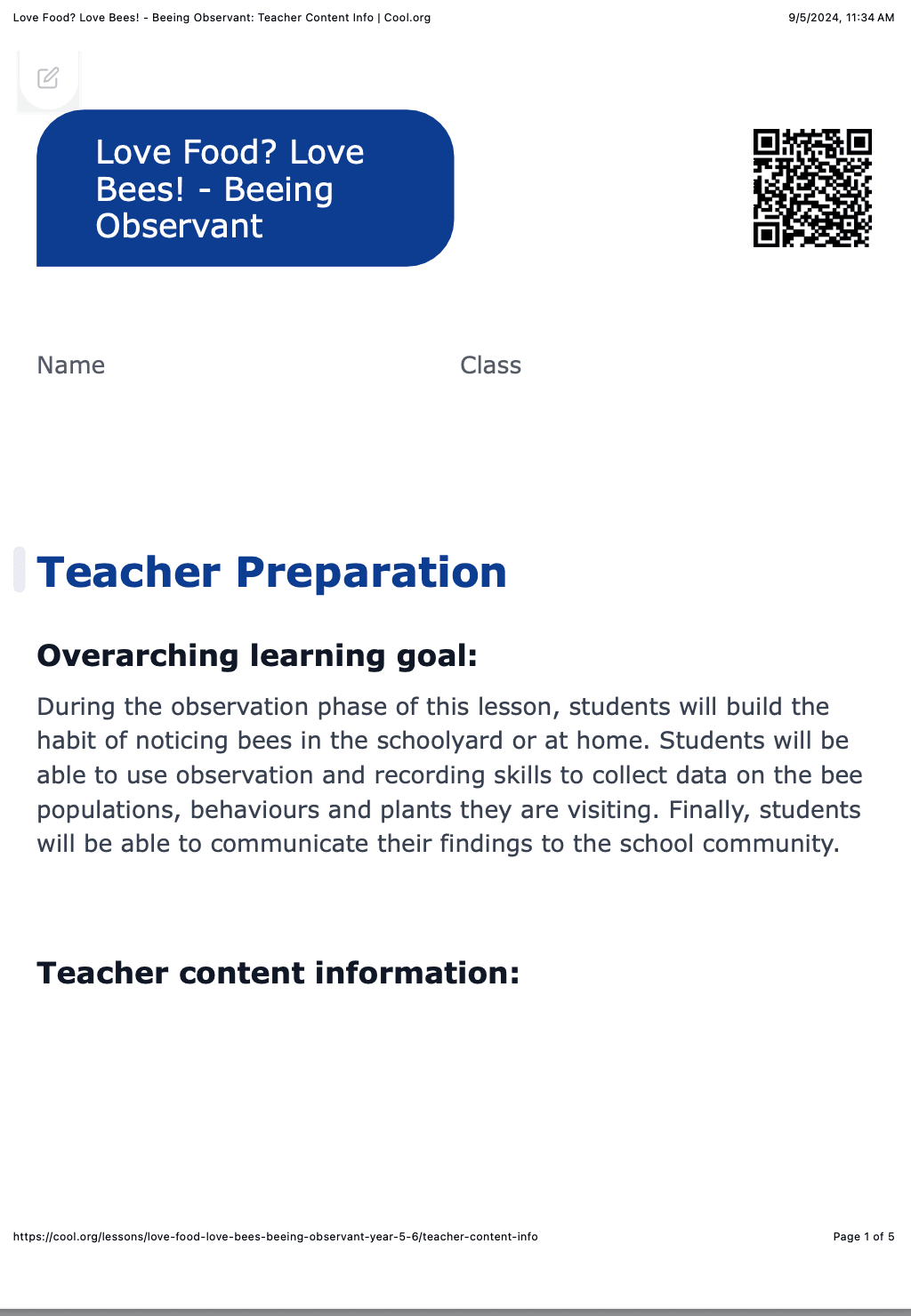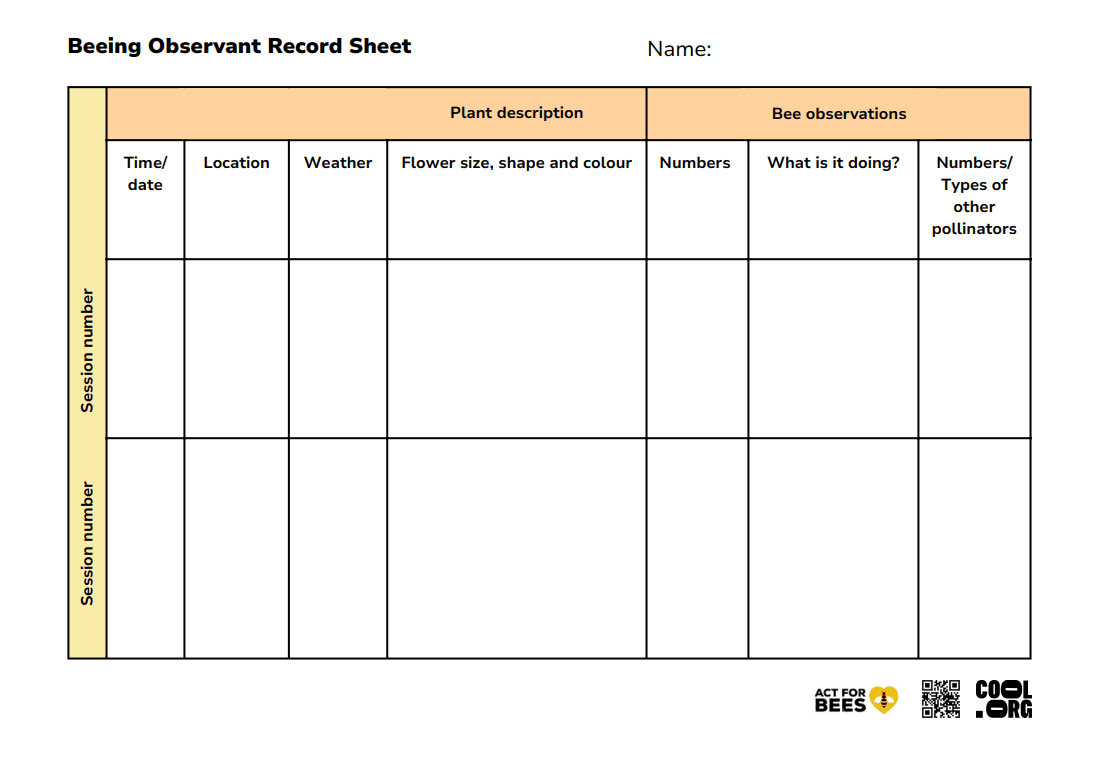
Beeing Observant
Lesson2 of 10 in this unit
PrimaryYear 5 - 6ScienceEnvironmentalBiodiversityConservationSustainability
Summary
Lesson guides and printables
Lesson Plan

Teacher Content Info

Bee-ing Observant Record Sheet


Lesson Plan

Teacher Content Info

Bee-ing Observant Record Sheet
